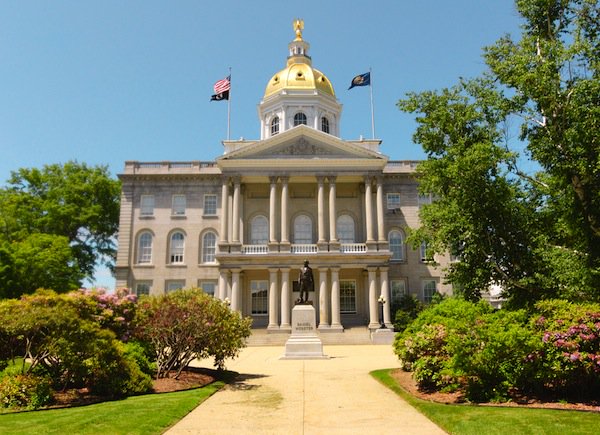Multi-Member Districts in NH a National Model for Equal Gender Representation

New Hampshire proves to be one of the more innovative states in its electoral process.
In its House of Representatives, districts are allotted a number of representatives to serve based on their population. Some districts have only one representative, but others have as many as eleven. They are elected through a process of multi-member district voting, where the citizenry casts as many votes as there are seats to be filled instead of voting for each seat separately and having different elections for each seat available.
What many studies have shown is that in these multi-member districts, more women get elected.
Political scientists believe that in these districts, parties feel pressure to run an equal number of women to men in a slate of candidates, and that voters tend to vote for candidates of both genders if they are given the opportunity.
Whether this theoretical justification is the reason for greater parity is still up for debate. However, statistics support the idea. Six of the 10 U.S. states with the highest percentage of women in their state legislatures use at least some form multi-member electoral districts, including Arizona, Maryland, New Hampshire, New Jersey, Washington, and Vermont.
The Center for Voting and Democracy looked specifically at New Hampshire to examine whether multi-member districts are the reason that the state is a gold-standard for gender parity. (In addition to the legislature boasting 32.8% female representatives, the 2012 election witnessed women sweeping into all five major statewide elected offices: governor, both senators, and both congressional seats — the first time in history this occurred.)
By examining districts with at least 5 seats, the center studied 9 key districts, all of which were heavily Republican except one. In a winner take-all-format, this would mean those districts would presumably elect Republicans in almost all of the seats. However, Republicans did not dominate the results; instead Democrats were able to take seats in five of the eight heavily Republican districts.
In the center’s analysis, it found that the lack of Republican female options was the reason. Faced with a list of five or more male names and zero women, voters often crossed party lines to elect a woman.
In each seat that a Democrat won in the Republican district, the elected official was a women and the Republican that was left out was a man.
While New Hampshire typically enjoys a fairly independent-minded electorate to begin with, the center’s study indicates that gender trumps even party affiliation in the multi-member elections.
Whether individual states should change their electoral systems based on trying to increase gender representation is still up for debate; however, New Hampshire’s voting system appears to, at the very least, allow for more independent voting--an important conclusion for a country frequently mired in political morass.




